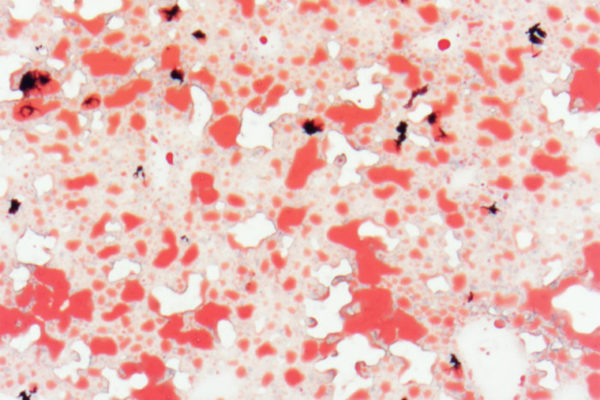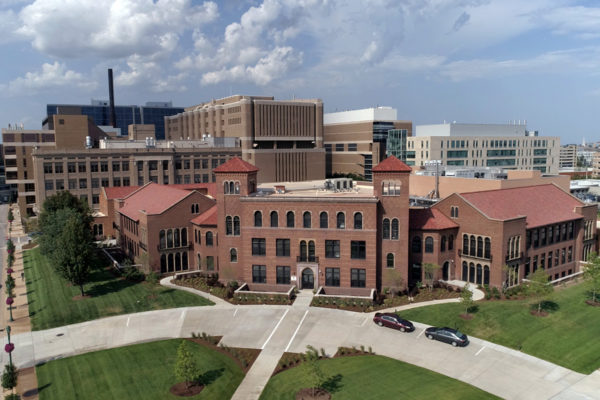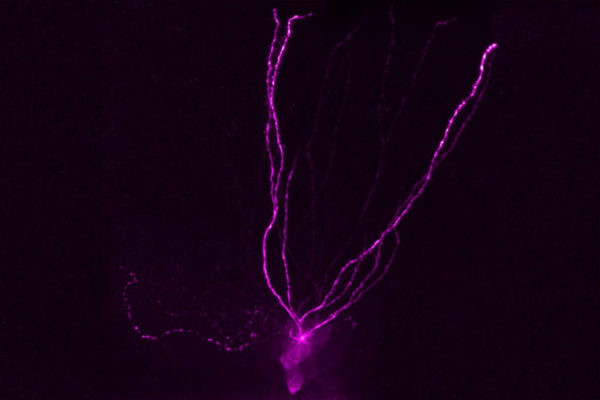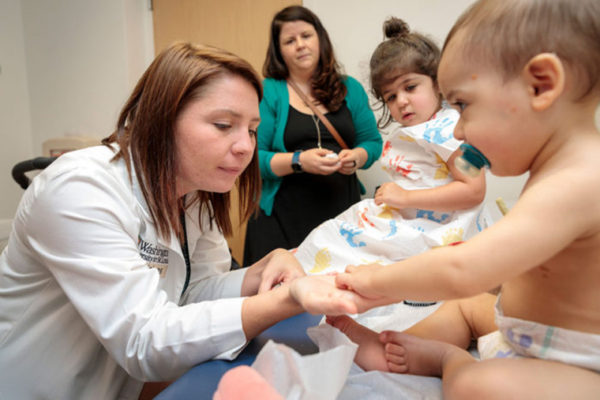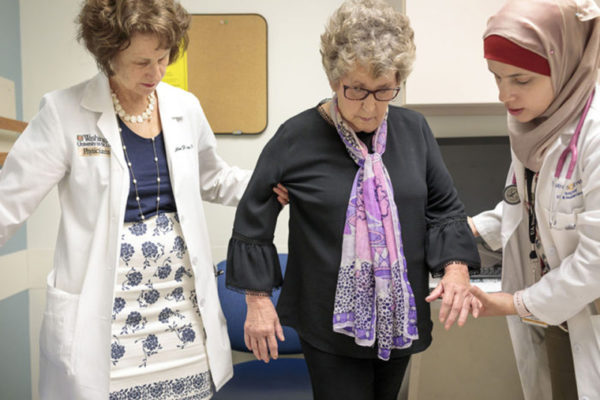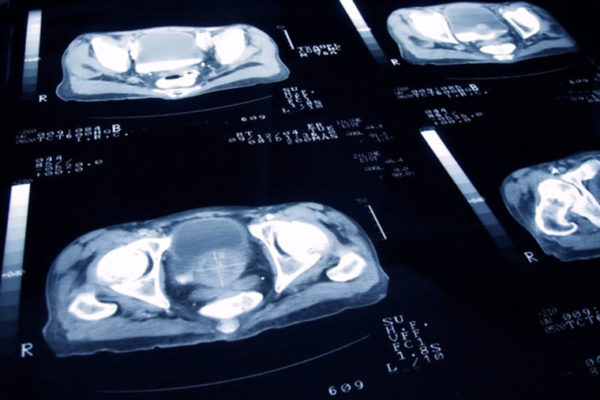Natural sugar defends against metabolic syndrome, in mice
New School of Medicine research, in mice, indicates that a natural sugar called trehalose blocks glucose from the liver and activates a gene that boosts insulin sensitivity, reducing the chance of developing diabetes.
Lasers help fight deadly brain tumors
A research team at the School of Medicine has found that laser treatment designed to destroy the deadly brain cancer glioblastoma can add an average of two months to a patient’s life, compared with chemotherapy. The increase is small but meaningful for people who have only months left to live.
Improving health insurance literacy aids Missourians’ ACA enrollment
Research led by the School of Medicine found that community outreach and education are critical for individuals navigating health insurance options available in the Affordable Care Act (ACA) marketplace. Such efforts at the state level may have contributed to a higher enrollment among Missourians in 2018.
Historic buildings on Medical Campus given new life
Historic buildings that once housed St. Louis’ first Shriners Hospital for Children and the old Central Institute for the Deaf opened Aug. 1 as the newly renovated and named Core Apartment Residences on the Washington University Medical Campus.
Depressed patients see quality of life improve with nerve stimulation
People with depression who are treated with nerve stimulation experience significant improvements in quality of life, even when their depression symptoms don’t completely subside, according to results of a national study led by School of Medicine researchers.
New approach to developing antidepressants
School of Medicine researchers are trying a different approach to alleviate depression. Using CRISPR technology, the scientists have been able to target a different type of receptor in the brain that may be aided by natural mood-boosting substances.
Brain tumors occur often in kids with common genetic syndrome
A new School of Medicine study shows that children born with neurofibromatosis (NF1), a common genetic syndrome, are much more likely to have brain tumors than previously thought.
Mallinckrodt boosts rare-disease research at Washington University
The School of Medicine has joined with Mallinckrodt Pharmaceuticals in a collaborative research partnership aimed at pursuing new therapies for patients with complex medical conditions, especially rare diseases that may have few or no treatment options. The global pharmaceutical company will fund up to $10 million over five years.
Can testosterone plus exercise improve healing after hip fracture?
Researchers at Washington University School of Medicine are leading a national, multicenter study exploring whether testosterone plus exercise can restore physical abilities in elderly women who have broken a hip. The study is funded with a $15.6 million National Institutes of Health (NIH) grant.
Analysis of prostate tumors reveals clues to cancer’s aggressiveness
Researchers from the School of Medicine and other institutions have sequenced the whole genomes of more than 100 metastatic prostate tumors, revealing new information about what drives the aggressive forms of this cancer.
View More Stories
